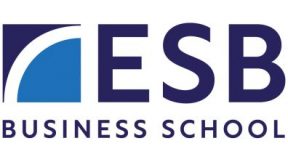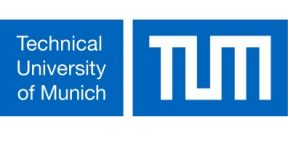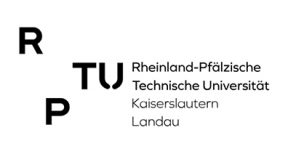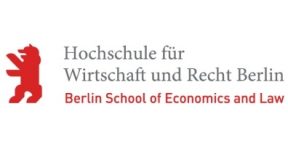Studienkollegs - Preparatory Courses

Not all foreign school-leaving certificates are recognised as university entrance qualification (in German: Hochschulzugangsberechtigung, HZB) for studies in Germany. Without the HZB, it is not possible to enter directly into the German university system. Currently, many German universities offer Ukrainian students the opportunity to participate in their study programmes as guest students (in German: Gasthörer). For information about whether you can acquire credit points as a guest student, please contact the respective higher education institution. As a rule, however, this path does not lead to an academic degree.
Ukrainians who have completed school with the certificate of general secondary education obtain the subject-related HZB by attending a Studienkolleg for one year, which is followed by the Feststellungsprüfung (assessment test). It may also be possible to start studying a specific subject at a German higher education institution if one year of study in the corresponding subject has already been successfully completed in Ukraine.
Information regarding the evaluation of Ukrainian school-leaving certificates and degrees can be found on the DAAD admission database.
Studienkollegs vary in the subject focus of the courses that are offered and the type of higher education institution for which they prepare students – so it is important to carefully choose the right Studienkolleg.
Your selection of a Studienkolleg will depend on whether your subsequent study programme will be at a university or a university of applied sciences. Graduates of a Studienkolleg that prepares students for university studies can study at all types of higher education institutions, but a Studienkolleg at a university of applied sciences only qualifies students to study at a university of applied sciences.
In addition, the subject that will be studied is a deciding factor. Although all Studienkollegs teach general competencies and language skills that are necessary for successful studies in Germany, they have different foci:
-
for studies at universities
- M courses – for medical, biological or pharmaceutical courses of study
- W courses – for business and economics programmes and social science courses of study
- G courses – for the humanities or German studies programmes
- T courses – for mathematical-scientific or technical courses of study
- S courses – for language programmes
-
for studies at a university of applied sciences
- TI courses – for technical and engineering courses of study
- WW courses – for economics programmes
- GD courses – for creative and artistic programmes
- SW courses – for social science courses of study
At the end of a Studienkolleg programme, there is an assessment test, the so-called Feststellungsprüfung. Successfully passing the assessment test allows access to studies throughout Germany at all universities or universities of applied sciences.
Public or private Studienkollegs
It is also important to differentiate between public and private Studienkollegs. Public Studienkollegs guarantee a state-recognised assessment test. You can find an incomplete list of public Studienkollegs at www.studienkollegs.de.
However, there are only a few private Studienkollegs that can offer a state-recognised qualification. Therefore, applicants should inform themselves in advance. It is also possible to prepare for the assessment test at a private Studienkolleg and then take the assessment test externally. The external assessment test will be recognised at all German higher education institutions, and it will qualify the applicant to apply for a study place according to his or her focus and type of university.
Learn about possible Studienkollegs and the criteria for your application from the respective higher education institutions.
Usually, preparation at a Studienkolleg takes two semesters and requires German language skills at least at level B1 of the Common European Framework of Reference for Languages. Students who perform very well may be able to shorten this time to one semester.
Prospective students are taught all the linguistic, technical and methodological requirements that are required for a course of study. In addition to the focus on course content, cultural and social skills are taught in order to make it easier for students to start their studies in Germany. Most Studienkollegs offer courses in the German language. Studienkollegs teach language skills up to level C1 of the Common European Framework of Reference for Languages.
In general, public Studienkollegs offer programmes that are free of charge (except for the semester fee), whereas private Studienkollegs frequently charge fees.
It is sometimes not possible for applicants to directly apply for a place at many public Studienkollegs. Depending on the degree programme or higher education institution of your choice, you can apply directly to the institution or via uni-assist. On the other hand, direct application is often possible at private Studienkollegs.
It is worthwhile to carefully check which Studienkolleg is best for you, because if the higher education institution of your choice has its own Studienkolleg or cooperates closely with a private Studienkolleg, the processes and schedules will be coordinated. In some cases, Studienkollegs also guarantee a place in individual degree programmes at certain universities after a successfully completed Feststellungsprüfung.
Because of this, it is important to check with the higher education institution of your choice to find out if the Feststellungsprüfung of the Studienkolleg you want to attend will be accepted in order to avoid any potential problems.
Preparatory courses (Propädeutika)
If you do not need to attend a Studienkolleg but still want to prepare for your studies in Germany, you can attend a preparatory course, sometimes also introductory course. In this type of introductory programme, you will prepare specifically for your degree programme in terms of language and subject knowledge. There is often also an introduction to the German academic system and academic working methods.
There are programmes for international students
- who have already been admitted to to study at a higher education institution in Germany,
- who have not yet been admitted, but have already met the formal requirements for studying in Germany,
- who still need to meet the formal requirements for a higher education entrance qualification.
These courses last for a few weeks or for one or two semesters.
You will find a selection of preparatory courses (Propädeutika) under the heading Prep Course in the DAAD database International Programmes in Germany.
DAAD-Higher Education Programmes for Refugees
Integra - Integration of Refugees in Academic Programmes and NRWege: Pathways into Studying
The Integra programme provides preparation course at German universities for qualified refugees.
Universities in North Rhine Westphalia offer additional preparatory courses within the programme NRWege: Pathways into Studying.
Both programmes focus on German language courses preparing prospective students for the language test required for university admission. This is generally the Test of German as a Foreign Language (TestDaF) or the German Language Examination for University Admission for Foreign Applicants (DSH). Like the Propädeutika, these programmes offer courses on academic and technical terminology in German, frequently also in English. Courses and workshops on study skills, academic writing and the German higher education system ascertain a smooth transition into university study.
Programmes are mostly based on a modular basis, which means that the length of the course will vary according to the applicant’s level of language or knowledge in their field of study. The Integra programmes are open to both future bachelor and master students.
Integration measures
The academic offers are accompanied by measures for the social integration of future students, which are organised by student initiatives at the respective universities. These offers range from student counselling and tutorials to buddy programmes and law clinics that offer advice on legal issues.
One advantage of the Integra programmes is that the participants already get to know the university offering the programme. However, they are free to apply to other universities afterwards.
Participation in the preparation programmes is free of charge.
More Information
For information on specific programmes please contact your chosen university [PDF 696.00 KB].



